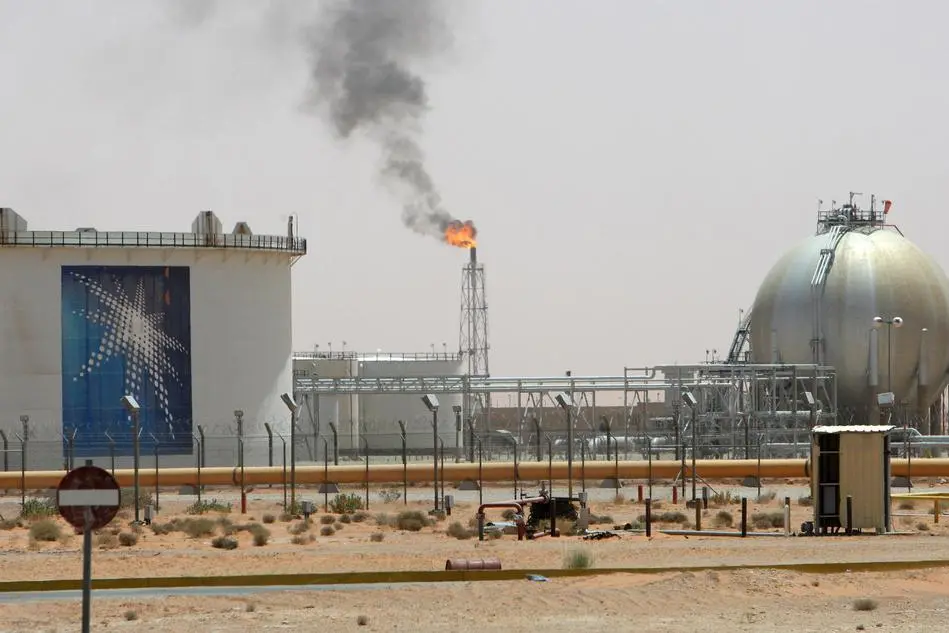PHOTO
(The opinions expressed here are those of the author, a columnist for Reuters.)
By Clyde Russell
LAUNCESTON, Australia, Feb 1 (Reuters) - It's probably no coincidence that Saudi Aramco
This was the fourth month this occurred in 2015, underscoring that state-owned Saudi Aramco, the world's largest oil exporter, is facing serious competition in maintaining its market share in China, which may overtake the United States as the world's largest crude importer in 2016.
China imported 50.55 million tonnes of crude from Saudi Arabia in 2015, according to customs data, up 1.8 percent from the previous year.
That is equivalent to about 1.01 million barrels per day (bpd) and roughly in line with the 1.1 million bpd in term contracts the Saudis are believed to hold with Chinese refineries.
The likelihood is that China's imports from Saudi Arabia won't show much change this year, given the renewal of term crude contracts at the same volumes as in 2015, although shipments could rise if refineries request more crude than they are contractually obligated to buy.
Saudi Arabia's market share of Chinese imports was 15 percent in 2015, down from 16.1 percent in 2014 and significantly lower than 20 percent in 2012.
Still, Saudi exports to China have been remarkably stable
This shows that while Chinese refiners are more than willing to enter into term contracts for substantial volumes, crucially, they haven't been seeking to boost the amount of contracted volumes from Saudi Arabia in recent years.
Rather, Chinese refineries have been diversifying their supply base, which makes sense from both a business and strategic viewpoint.
Russia exported 42.43 million tonnes of crude to China in 2015, up 28.2 percent on the prior year, giving it a market share of 12.6 percent last year, up from 10.7 percent in 2014.
Among other major suppliers, Iraq increased exports to China by 12.4 percent and Brazil by 98.4 percent, while volumes from Angola and Iran fell 4.8 percent and 3.1 percent, respectively.
It's likely, however, that with the easing of Western sanctions against Iran in the wake of the nuclear agreement, Tehran will seek to regain some of its lost market share, which could put pressure on similar Middle Eastern grades supplied by Iraq, Kuwait and the United Arab Emirates.
Chinese refiners are most likely quite willing to encourage competition among suppliers, especially in an environment of low crude prices, although the question has to be asked how Saudi Arabia will respond.
It's unlikely that Saudi Aramco is happy just to keep volumes supplied to China steady, which would cede market share as overall imports keep growing.
China and India are likely to be the drivers of crude oil demand growth in coming years, and the Saudis will want to ensure they maintain their position as the supplier of choice in both of those markets.
REPLICATING U.S. SUCCESS
Saudi Aramco may be trying to pursue a strategy in China similar to what has worked well for it in the United States.
There, the company bought into the refining industry in 1988 by acquiring a 50 percent stake in Texaco's operations, and this has over the years morphed into the 50-50 joint venture with Royal Dutch Shell
Owning refineries and providing the right type of crude for them to run optimally has enabled Saudi Arabia to keep its exports to the United States relatively constant at around 1.2 million bpd since 2009, even as tanker arrivals from other countries halved to 3 million bpd, according to Reuters market analyst John Kemp.
Saudi Aramco Chairman Khalid al-Falih told reporters last week that the company was in talks with China's oil majors, China National Petroleum Corp
This would expand to China the existing cooperation between the two nations, with state-owned Sinopec being a partner in the kingdom's 400,000 bpd Yasref plant.
If Saudi Aramco is looking to do nothing more than make sure its volumes of exports to China don't decline, then buying stakes in Chinese refineries will probably work well.
However, if the Middle Eastern energy giant wants to reclaim lost market share, besides buying significant stakes in many refineries, it will also have to somehow encourage CNPC and Sinopec to boost contracted volumes.
If Aramco wanted to regain a 20 percent share of China's imports, this would imply boosting exports by about 300,000 bpd to around 1.4 million bpd.
To make sure Saudi crude was being processed at that level, how much refining capacity would they have to become joint venture partners in
A fair assumption would be at least 1 million bpd, meaning the Saudis would have to spend billions of dollars buying stakes, assuming the Chinese would be willing to sell this much.
This raises questions as to whether Saudi Aramco currently has the balance sheet strength for such an investment, and further fuels speculation as to why the company may be willing to sell part of itself, or its units, to outside investors.
Saudi Aramco is considering various ideas over the possible listing of the company or its subsidiaries, the Wall Street Journal reported on Jan. 11, citing an interview with the chairman.
Much will depend on the scale of the Saudi ambition, whether keeping volumes relatively steady is enough, or whether absolute market share is the more important long-term goal.
<^^^^^^^^^^^^^^^^^^^^^^^^^^^^^^^^^^^^^^^^^^^^^^^^^^^^^^^^^^^ Graphic of China's crude imports from Saudi Arabia & Russia
^^^^^^^^^^^^^^^^^^^^^^^^^^^^^^^^^^^^^^^^^^^^^^^^^^^^^^^^^^^> (Editing by Tom Hogue) ((clyde.russell@thomsonreuters.com)(+61 437 622 448)(Reuters Messaging: clyde.russell.thomsonreuters.com@reuters.net))
Keywords: COLUMN RUSSELL/CHINA CRUDE





















